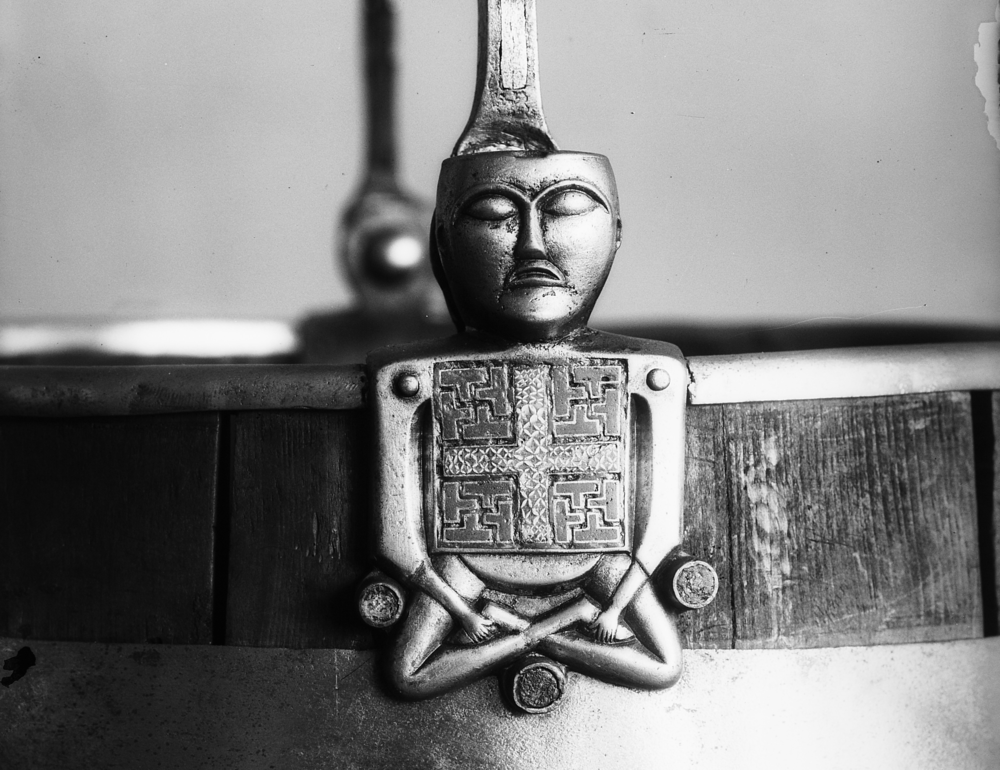Oseberg Buddha: Buddha in Viking Luxurious Burial Mound
Viking Excavation always yielded wealth and value even if the site was plundered previously. In the Oseberg excavation, the archaeologists unearthed a bucket with the small handle similar to Buddha sitting on the lotus position.
The Oseberg Excavation
It was in 1904 that the archaeologists finished their excavation of the Oseberg burial mound. Starting with the discovery of the Oseberg ship, the archaeologists later found out the ship was a part of the burial mound.
The Oseberg dated back to the 9th century which was during the glory of the Viking Age. There were signs that the Oseberg ship was looted and the tomb robbers attempted to break through the prows and the roofs of the burial site. They must have stolen all of the precious items.
But the excavation yielded incredible artifacts, especially the Viking ship which we know as the Oseberg. The skeletal remains of two women inside the Oseberg burial site suggested the high social rank of the Viking women who deserved an extremely luxurious funeral. Other items left inside raised questions, for example, the Oseberg tapestry of the "horned helmet".

Viking Buddha Bucket unearthed from the Viking Oseberg ship
The Buddha bucket found inside Oseberg ship helped the archaeologists once again believe in the international relationship between the Vikings and people from other regions.
The Buddha Bucket inside the Oseberg burial site
The Buddha bucket had a figure making the joint of the bucket handle. That figure was practising the meditation position. He sat on the lotus position ("Padmāsana"). His head flat. Eyes closed and facial expression sank. The decorations on the chests were in the yellow, red, and blue colours. It was the swastika illustrating the front of the Buddha's cloak. The swastika in Buddism meant luck, good fortune, and blessing.
The Vikings must have met the Buddhists from other regions during their voyages or the newcomers came to Scandinavian countries to trade.

However, some scholars refused to believe that the statue was the Buddha because of the shortage of clear information. They were more likely to believe it was a Viking who was practising the lotus position. Another group of scholars believed that the small statue was presenting a human sacrifice.
This Buddha bucket seemed to originate in England while the Viking Buddha Statue in Helgo originated somewhere in Eurasia. Overall, it is indeed very hard to tell correctly what the Viking Buddha Bucket handle was trying to depict. Everything still remains to be seen.

The Buddha statue that archaeologists found in Helgo




